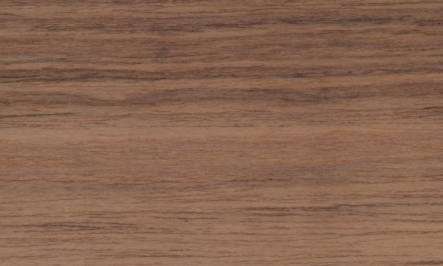 
Afata (Cordia trichotoma)
Family: Boraginaceae
Common names: Afata, Afata grande, Ajui, Alatrique, Amapa prieta, Arbol del ajo, Baria amarilla, Bohun, Bois de cipre, Bois de cype, Bojon, Bojon blanco, Bojon prieto, Brown silverballi, Buhun, Canalete de humo, Canjaro, Capa, Capa roja, Capaw, Cascudinho, Cautaro, Claraiba, Dzeui, Frei jorge, Freijo, Hormiguero, Lapachillo, Laurel, Laurel blanco, Laurel hembre, Laurel macho, Laurel negro, Loro, Loro amarillo, Loro negro, Louro, Louro amarello, Louro amarelo, Louro mutamba, Louro pardo, Louro-batata, Louro-da-serra, Louro-do-sul, Mutamba, Nopo, Palo de maria, Palo de rosa, Palo de rosa del pais, Pardillo, Pardillo de monte, Pau cacharro, Peterebi, Peterebi saiyu, Petereby, Petereri-hu, Peteribi saiyo, Prince wood, Salaam, Salmwood, Spanish elm, Suchah, Suchicahue, Tambor, Taparai, Urua, Uruasinho, Uruazeiro, Varia, Varia colorada
Distributed in: Argentina, Brazil, Paraguay (Latin America)
Common uses: Boat building: framing, Boxes and crates, Cooperages, Flooring, Furniture, Heavy construction, Joinery, Light construction, Millwork, Paneling, Plywood, Structural work, Turnery, Vats, Vehicle parts, Veneer: decorative
Tree size: Trunk diameter is 100-150 cm
Colors: the heart isRed, Yellow to golden-yellow to orangeand the sapwoodWhite to yellow, Yellow.The grain isStraight, the textureMediumand the lusterPronounced
Natural durability: Susceptible to attack from termites (Isoptera), Susceptible to marine borer attack
Kiln Schedules: UK=E US=T6D2/T3D1 Fr=5
Drying Defects: Slight surface checking, Slight twist/warp
Ease of Drying: Easy
Tree Identification: Bole/stem form is not buttressed
Comments: General finishing qualities are rated as good
Cutting Resistance: Cutting Resistance with dry wood is easy
Gluing: Easy to glue
Nailing: Easy to nail
Planing: Easy to plane
Response to hand tools: Easy to machine
Polishing: Satisfactory;
- Numerical data Metric
- Numerical data English
- Strength properties
- References
 |
 |
 |
 |
| Item |
Green |
Dry |
Metric |
| Specific Gravity |
|
|
|
| Density |
|
592 |
kg/m3 |
| Bending Strength |
834 |
1293 |
kg/cm2 |
| Crushing Strength |
415 |
616 |
kg/cm2 |
| Hardness |
|
493 |
kg |
| Impact Strength |
|
|
cm |
| Shearing Strength |
|
139 |
kg/cm2 |
| Stiffness |
122 |
141 |
1000 kg/cm2 |
| Tangential Shrinkage |
8 |
|
% |
| Radial Shrinkage |
4 |
|
% |
| Weight |
576 |
464 |
kg/m3 |
| Maximum Load |
|
|
cm-kg/cm3 |
| Toughness |
|
|
cm-kg |
| Static Bending |
|
|
kg/cm2 |
|
 |  |  |  | | Item | Green | Dry | English | | Bending Strength | 11870 | 18400 | psi | | Density | | 37 | lbs/ft3 | | Hardness | | 1089 | lbs | | Maximum Crushing Strength | 5905 | 8762 | psi | | Shearing Strength | | 1989 | psi | | Stiffness | 1748 | 2016 | 1000 psi | | Weight | 36 | 29 | lbs/ft3 | | Radial Shrinkage | 4 | | % | | Tangential Shrinkage | 8 | | % | | Volumetric Shrinkage | 12 | | % | |
Shrinkage, Tangential = moderate
Shrinkage, Radial = moderate
Max. crushing strength = high
Hardness (side grain) = soft
Bending strength (MOR) = high
Shearing strength (parallel to grain) = medium
Bending strength (MOR) = medium
Shrinkage, Volumetric = moderate
Shrinkage, Volumetric = fairly large
Modulus of Elasticity (stiffness) = low
Max. crushing strength = medium
Shrinkage, Tangential = fairly large
Shearing strength (parallel to grain) = low
Density (dry weight) = 38-45 lbs/cu. ft.
Shrinkage, Tangential = large
Shrinkage, Radial = small
Shrinkage, Radial = large
Shrinkage, Radial = fairly large
Modulus of Elasticity (stiffness) = medium
Modulus of Elasticity (stiffness) = high
Hardness (side grain) = medium
Density (dry weight) = 31-37 lbs/cu. ft.
Berni, C.A., Bolza, E., Christensen, F.J.,1979,South American Timbers - The Characteristics, Properties and Uses of 190,Species,C.S.I.R.O Div. Building ResearchBrazier, J.D.,1975,Properties and uses of Brazilian woods,Journal of the Institute of Wood Science,7(2,pp50-57Brown, W.H.,1978,Timbers of the World, No. 2 South America,TRADA, Red Booklet SeriesCelulosa Argentina,1973,Libro del Arbol,Celulosa Argentina Buenos Aires 3 VolsChudnoff, M.,1984,Tropical Timbers of the World,U.S.A. Department of Agriculture, Forest Service, Forest Products,Laboratory, Madison.Kukachka, B.F.,1970,Properties of Imported Tropical Woods,Forest Research Paper FPL 125Mainieri, C., Pereira, J.A.,1965,Madeiras do Brasil,Anuario Brasileiro de Economia Florestal,17(17,PP135-416Mainieri, C.,1970,Madeiras Brasilieras,Sao Paulo Secretaria da Agricultra, Institulo FlorestralMainieri, C.,1978,Fichas de Caracteristicas das Madeiras Brasileiras,Inst. Pesquisas TechnologicasRecord, S.J., Hess, R.W.,1943,Timbers of the New World,Yale University PressRizzini, C.T.,1978,Arvores e Madeiras Uteis do Brasil: Manual de Dendrologia Brasileira,Editora Edgard Blucher LTDA BrazilSao Paulo - Instituto de Pesquisas Tecnologicas,1956,Tabelas de Resultados obtidos para Madeiras Nacionais,Inst. Pesq. Tec. Sao Paulo, Brazil Bol., No.31(2nd Ed.)Tortorelli, L.,1956,Maderas y Bosques Argentinos,Editorial Acme S.A.C.I. Buenos AiresTropical Woods,1968,Madeiras Comercias Brasileiras,Inst. Pesq. Tec. Sao Paulo Brazil Publ.,857Wangaard, F.F., W.L. Stern, and S.L. Goodrich. 1955. Tropical Woods - Properties and Uses of Tropical Woods, Volume V, No. 103. School of Forestry, Yale University, New Haven, Connecticut.
|









